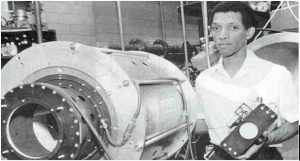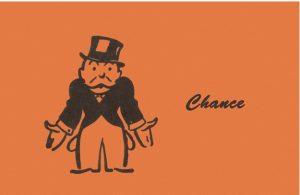Jesus’s Church: A Political Body
Western theology has always preached that Jesus Christ is going unite humanity and put an end to strife and want. Most preachers, for example, speak beautifully about how the spirit of Christ in you can completely eliminate conflict and create a brotherhood of man. Nobody who calls themselves Christian can disagree. However, religious headmen place this transformative power in some abstract after life, far above the clouds; and it comes only after you first lived your life obedient to the oppressor.
Yet, while you live–ignorant and inactive toward God–you are left alone in an age old struggle as mere units of exploitation, prey to the rich. And without skills, land or the means of production to sustain life you become alienated and vulnerable to a religion tailored by the tastes of capitalism. Isolated from true life you wait for death, for relief says the pulpit, while the oppressor reaps and enjoys all the earth to themselves. Truly, this is a gospel so weak and senseless that only the superstitious could bear it.
Has official Christianity’s tendency to translate Christ into highly abstract and highly spiritual mythology, to the point of losing the here and now, been faithful to the one who came to set captives free? Hardly so. According to New Testament writings the early church was an integrated political body for social upheaval. It was active against all oppression and ideologies of the oppressing class. The early vanguard was not a metaphysical research program that met once a week for bingo. It was a group of revolutionaries whom, for example, on Jesus’s teachings implemented systems to relieve the poor, feed the hungry and clothe the needy. This activity was done here on earth with the understanding of the stakes at hand: the church is to facilitate the coming in of the kingdom of God. Relief is now.
The word church (from the Greek ekklésia) is a politically charged term used in a governmental context; to be called such sent a clear message. The word first applied to citizens called out of Greco-Roman society to determine policy and legislation. These senators (elders) were known by their political activity to order the Hellenistic world. Likewise, Paul and the apostles were known by their revolutionary activity to advance God’s kingdom. Coupled with Christ, their political body became the called-out vanguard of revolution–to turn the earth back to the ways the creator. This authentic church dealt with real life and was economical, social, political, material and spiritual. Why the Greek word ekklésia is used to describe the body of Christ was not by accident.
Comparatively, when Jesus revealed to Peter “upon this rock I will build my church” he and his students were standing at the foot of a beautiful mountain near the coast of Caesarea Philippi. Symbolically, Caesarea Philippi was very important to the Greeks. Deified on its mountain peak was Greco-Roman thought and practice embodied and dedicated to their god Pan–the resident shepherd with power to protect and prosper the ruling class. By Christ’s day this rock of power had been dedicated to Caesar Tiberius and came to represent Roman glory, but in Jesus’s view it truly represented the “gates of hell.”
Aware of Caesarea Philippi’s significance to the Roman mind, Christ asked his students “who do men say I am?” Peter answered, “you are the Christ, the Son of the living God.” Pleased, Jesus then revealed that he was the Christ to smash the prevailing order; and that upon “this rock” he would build an ekklésia to see it through. Materialized by Jesus’s political body called to the way of God–filled with the spirit of justice and equity– one political order would swallow up the other. Put differently, an age old order of oppression would be dashed completely by representatives of a new kingdom order: The Church.
Paradoxically, mass Christianity will not dare mix with an accurate exegesis of the kingdom’s political line because real life is not an abstraction. The teachings of Jesus simply cannot be redesigned into the netherworld without real consequences for real people. It can’t both exist in the same sphere as capitalism and be a contradiction to it. You can not serve two masters.
Nevertheless, the bleaching of the gospel has become the culmination of the so-called Christian message. In terms of theology and practice, the whole lacks its original integrity, activity and vitality. History bares record of this consequence. It echos to the faithful: “take your suffering and die.”
The revolutionary Jose Miranda wrote,”the time has come for Christianity to break a long chain of hypocrisy and collusion with the established powers and decide if its message is or is not going to be the same as the Bible’s.”
Karl Marx wrote in 1844, “Religion is the sigh of the oppressed creature, the heart of a heartless world, and the soul of soulless conditions. It is the opium of the people.”
Marx is still right.
Let us build on true independence and salvation for the people.
You can reach us the (NMP) at 716-885-2289



